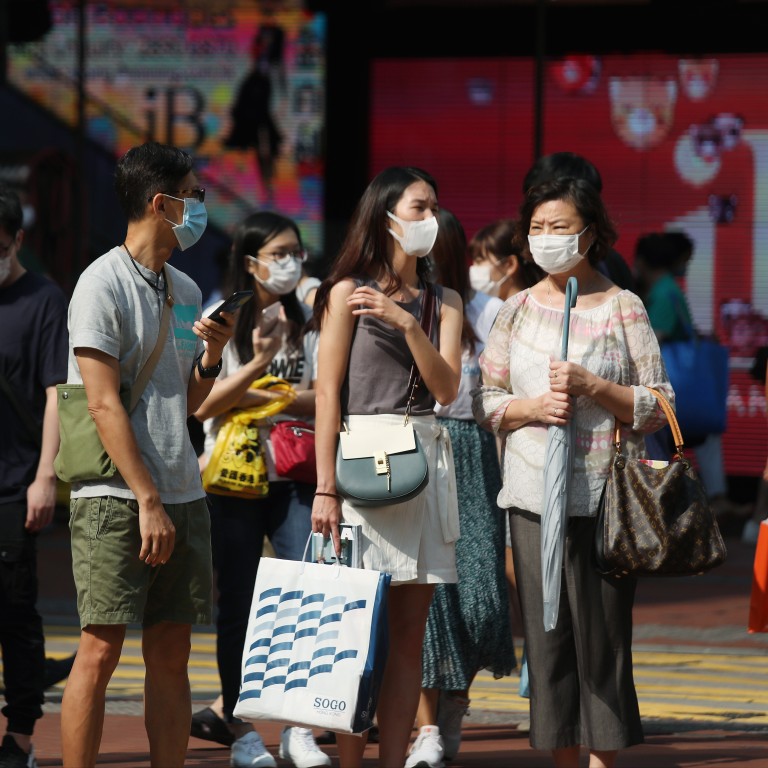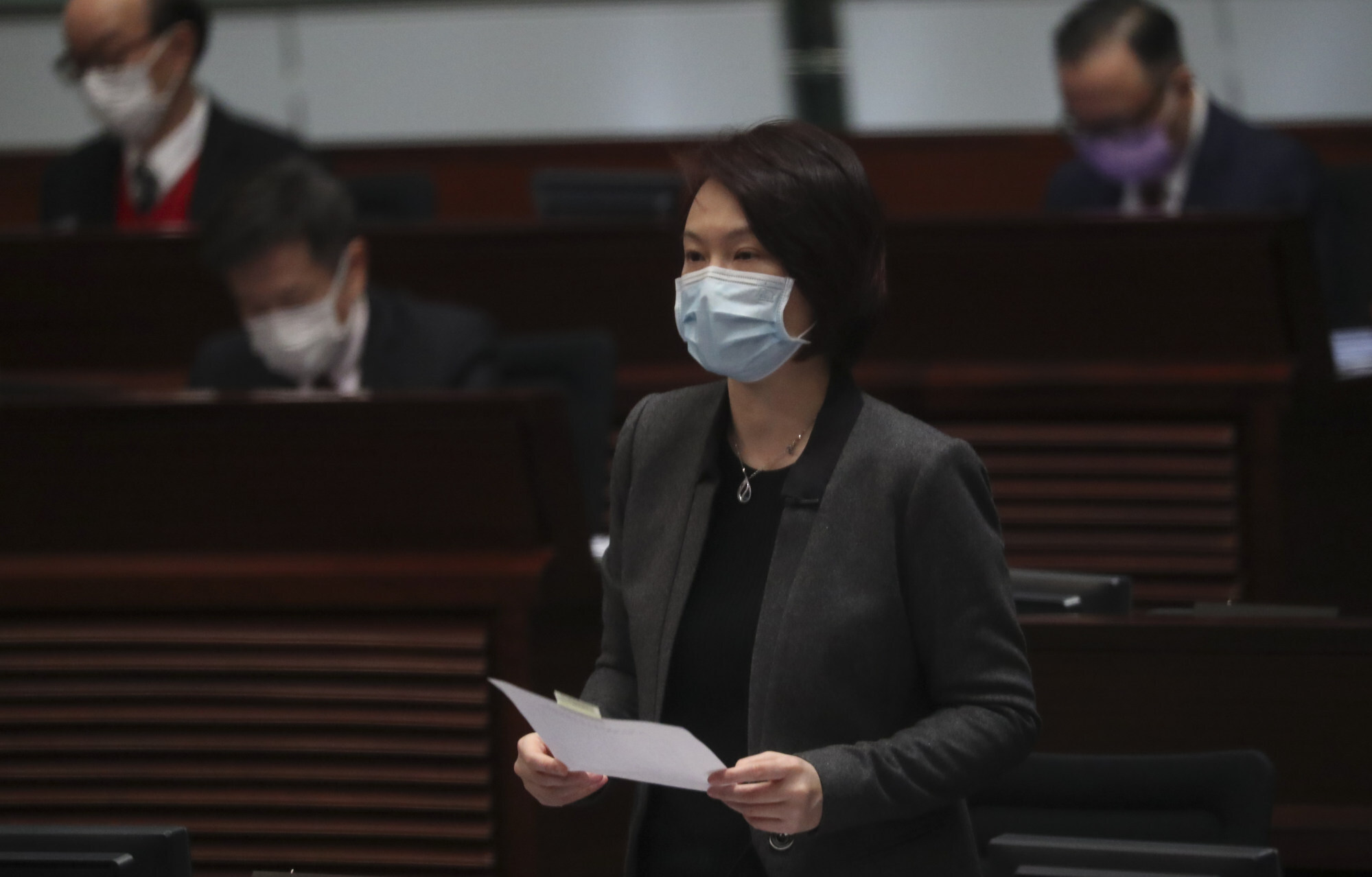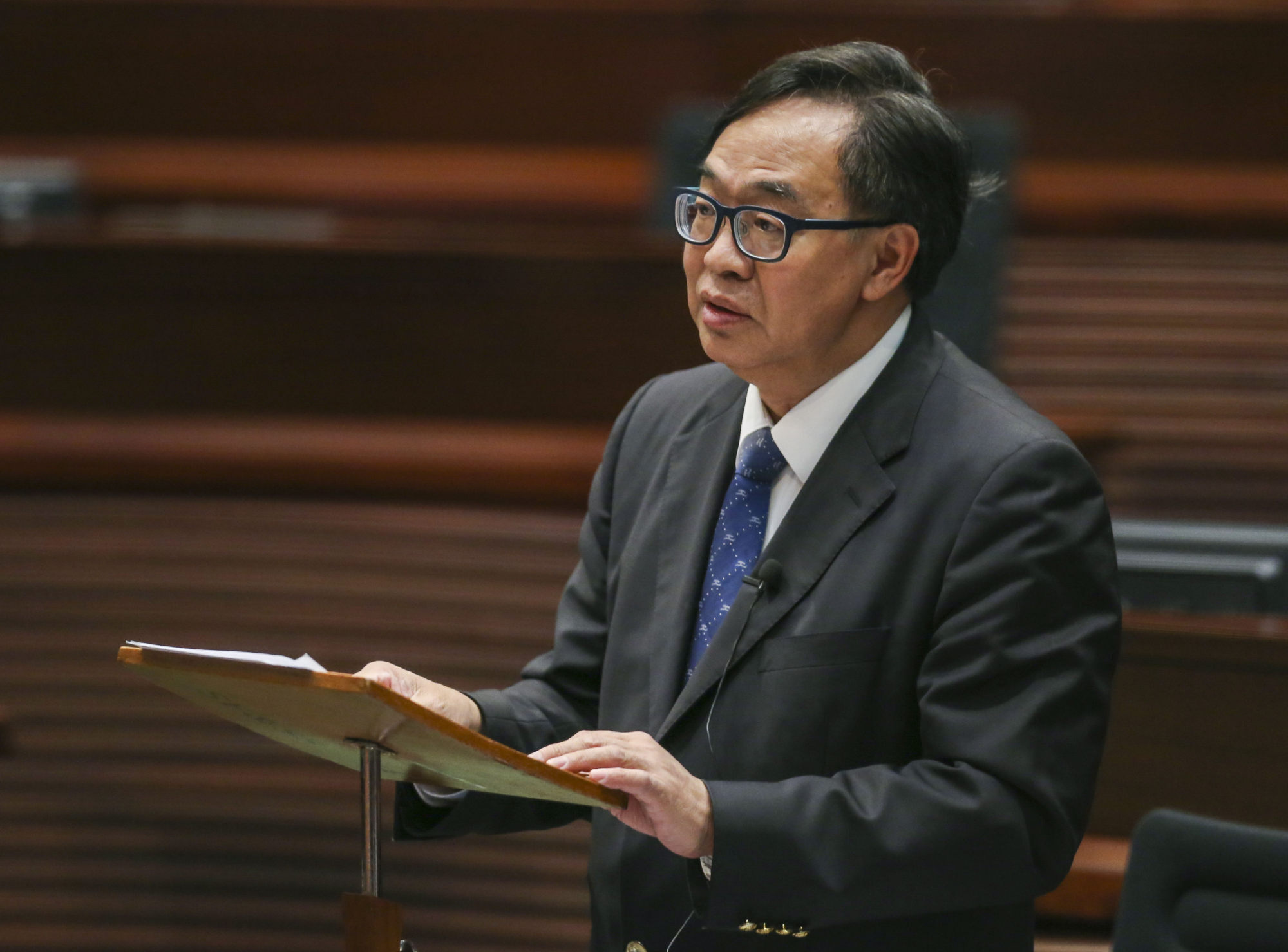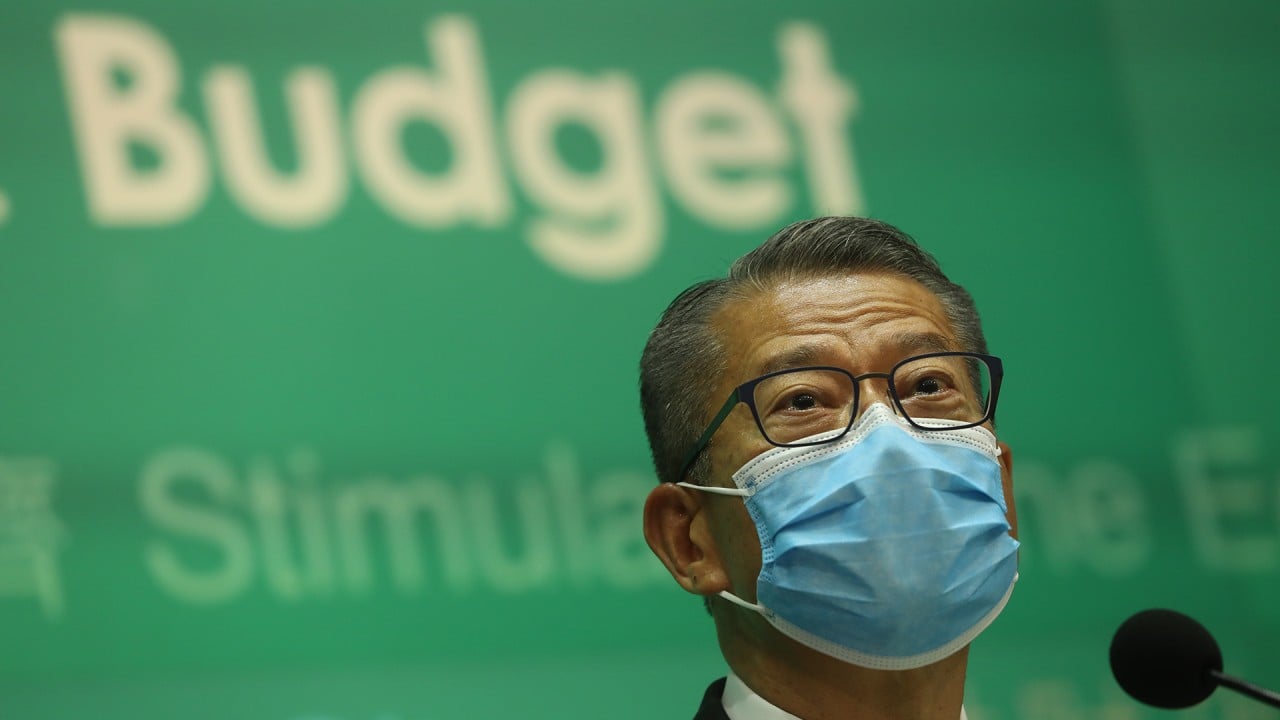
Coronavirus: Hong Kong lawmakers renew calls for unemployment scheme to help low-income groups survive economic fallout of pandemic
- Some business-sector legislators also threaten to abstain from voting on the government’s budget as they are unhappy about a planned rise in stamp duty for stock transactions
- DAB chief Starry Lee says she is disappointed with the government’s handling of the pandemic and its failure to support low-income groups
Their calls came as the Legislative Council kicked off a lengthy debate on the budget, tabled as the Appropriation Bill 2021.
But the government will also increase the stamp duty levied on stock trading and raise the first registration tax for private cars, while pledging zero growth in the civil service headcount in 2021-22 as part of its cost-cutting measures.
Chan had warned the city would suffer an annual deficit over the next few years because of rising recurring expenses and one-off anti-epidemic measures. Financial reserves were estimated at HK$775.8 billion by the end of March 2026, representing 22 per cent of GDP, or equivalent to 12 months of government expenditure.
Hong Kong’s HK$5,000 voucher scheme set for summer launch as providers chosen
Lawmaker Starry Lee Wai-king, chairwoman of the Democratic Alliance for the Betterment and Progress of Hong Kong (DAB), said she was disappointed with the government’s handling of the pandemic and its failure to support low-income groups, which were the most vulnerable.
“I have had discussions a few times with labour secretary Law Chi-kwong and failed to get a positive response,” she said. “There are just two urgent matters for the people: first, to successfully fight the pandemic and resume livelihoods; and second, to assist those most in need, but the government failed to do both.”
Lee added: “We are not sure when we can reach a target of zero infections, and when we can cross the border. People not only feel pandemic fatigue, they are getting frustrated.”

She said the DAB had repeatedly asked for a short-term help scheme so jobless Hongkongers could get HK$6,000 a month, for half a year.
Lo Wai-kwok, chairman of the Business and Professionals Alliance for Hong Kong, the second largest pro-establishment group in Legco, said his party was also disappointed that such a scheme had not been set up.
Law, the secretary for labour and welfare, had earlier said it would be very difficult to devise a payment system that was fair to everyone and could reach all those suffering because of the pandemic.
Demands for a support fund have risen along with the unemployment rate, which reached 7.2 per cent – a 17-year high - last month. The latest jobless figures are expected on Thursday.
Hong Kong budget: six key takeaways from finance minister’s speech
Christopher Cheung Wah-fung, of the financial services sector, said he was very disappointed about the planned rise in stamp duty, which he believed would weaken the city’s status as an international finance hub.
“The government lacks adequate understanding of market demand,” he said.
“The increase in stamp duty will weaken the competitiveness of the local stock market and make it more difficult to attract companies to list in Hong Kong. If Hong Kong wants to maintain its international competitiveness, it should further reduce its transaction costs.”
In a rare step, Cheung said he would abstain in the vote on the budget. He also proposed the tax increases last for one year only.
Echoing Cheung, Jimmy Ng Wing-ka, of the industrial sector, said the stamp duty measure had sparked uproar in the industry.

Not only would it have a profound impact on the industrial and commercial sector, as the low rate had always been to Hong Kong’s advantage, he said, the increases would result in the city lagging internationally on cutting taxes.
Lawmaker Michael Tien Puk-sun said his support for the budget would depend on the number of instalments the government would use to hand out HK$5,000 in e-vouchers.
He would vote for the budget if there were just two instalments rather than the five suggested earlier, while the DAB also called for more flexibility so residents could spend the vouchers on items such as children’s tuition fees, and cultural or entertainment shows.
The debate on the budget, which is expected to be approved, will continue next Wednesday.


